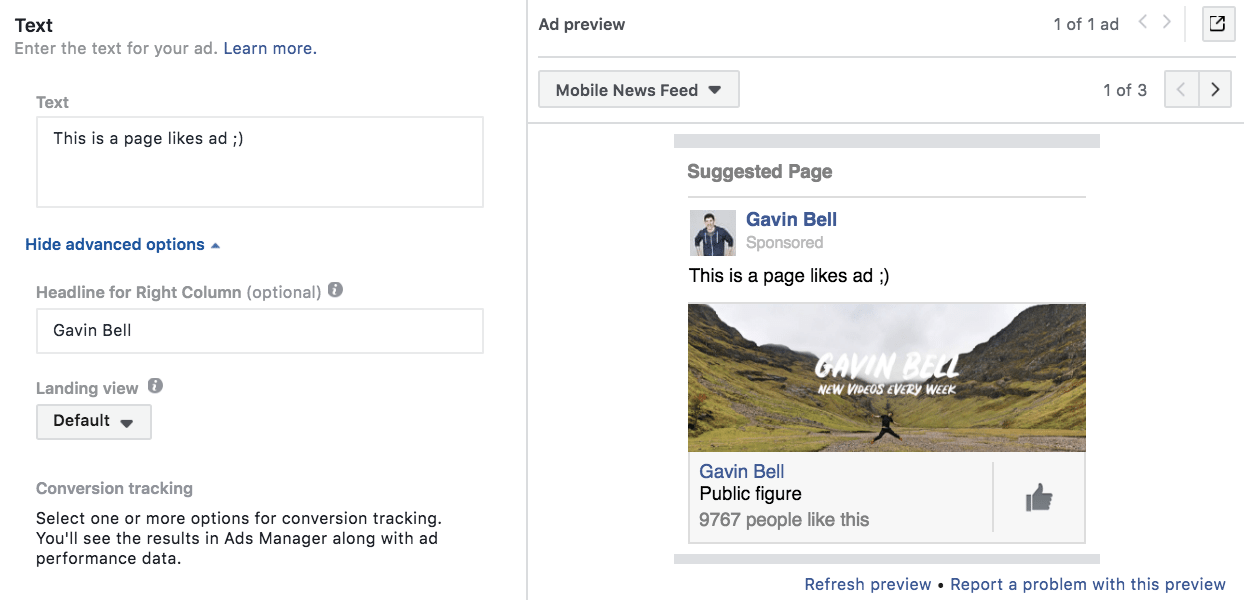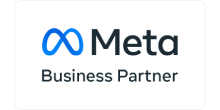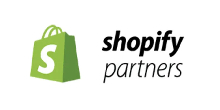Chances are, if you’re reading this, you’re a business owner or marketer looking to learn how to use Facebook advertising more effectively.
Maybe you’ve spent some money on Facebook, but never really seen the results you were after.
In this article I’m going to share 7 of my best Facebook advertising tips to help you make the most of your Facebook ad budget.
Let’s get stuck in.
1. Have a Facebook advertising strategy
First and foremost, it’s vital to have a strategy. That strategy doesn’t have to be particularly big or complex, but it needs to be there.
You might not even know what a Facebook advertising strategy is, or looks like. If so, simply ask yourself, what do you want to achieve from your advertising?
Be specific here.
Your advertising strategy is going to be based on what you’re trying to achieve. In most cases, for small business owners using facebook, that’ll be sales.
You then need to think about what steps people take to go from not knowing who you are, to becoming a customer. What does that process look like in real life? How can you mimic that on Facebook?
Once you’ve determined what it is you’re looking to do (and don’t spend a lot of time on this, as it’ll change… trust me), you want to…
2. Work out your numbers
Facebook advertising is really just a numbers game.
As someone who hated maths at school, it’s weird that I get enjoyment from this part of advertising
To have a real Facebook strategy, you need to work out the following things:
- How much you’re willing to spend to acquire a customer (CPA)
- What is the lifetime value of a customer to you (LTV)
- How much are you willing to spend to acquire a lead (CPL)
With the blueprint funnel, we monitor how much we’re spending to acquire a lead (from the lead magnet). We then want to monitor how much we spend to acquire a customer as we nurture them through our email marketing.
If you’ve never run any sort of paid traffic before, you won’t know how much to pay, but it’s important to make a guess initially and then run ads, see what the figures say and change your estimates/strategy based on that.
3. Use the Facebook Pixel
My third tip is to utilise the Facebook pixel.
The pixel is a piece of code that you can install on your website (for free). In my opinion, this is a must if you’re going to spend any money on Facebook.
Facebook describes the pixel as “…an analytics tool that allows you to measure the effectiveness of your advertising by understanding the actions people take on your website“.

It allows you to do some really cool things such as:
- Build retargeting audiences
- Optimise your facebook ads
- Track the performance of your ads
You can learn everything you need to know, including how to install the pixel, in this article dedicated to the Facebook Pixel.
4. Utilise Facebook custom audiences
A custom audience is essentially an ad targeting option that allows you to target an audience of people that have already had a touch of your brand.
They give you the ability to retarget people you’re already engaging with as a business.
For example, if someone visits your website, you can ‘retarget’ them with an ad. You can also do things like upload your newsletter/email list/customer files to Facebook and target them with an ad.
This is hugely powerful because the people you’re targeting already know who you are, and hopefully trust you, meaning when you run ads to them, they’ll be much more likely to engage with them.
For a business looking to make the most of Facebook advertising, this is the low hanging fruit. You might want to just retarget people that have visited your website for example, using the facebook pixel. Or if you’re a content creator and you create lots of videos, you can retarget those who have watched your videos.
5. Content is King
Probably the biggest mistake I see business owners and marketers make when they first start advertising on Facebook is trying to go straight for the sale.
They’ll create an ad that invites people to buy something from them, they’ll boost it out to an audience of people that have never heard of them before and… tumbleweed.
Why would anyone care?
When you advertise to people that have never heard of you before, they don’t care who you are or what you have to say. If you try and pitch them, it’s just the same as standing in the street asking strangers to buy from you. Not gonna work.
Instead, you need to focus on creating quality content that your audience will find useful and interesting. Facebook want your content to be entertaining or informative.
The best adverts on Facebook are the ones that don’t actually look like adverts. This is all covered in my Facebook ad blueprint. The first part of your strategy is just sending people to a free piece of content that might solve a problem of theirs.
Because they don’t care who you are, you have to make them care by creating content so good, they can’t NOT consume it.
6. Learn first; outsource second
It might be really tempting to outsource your Facebook advertising to an agency or consultant at the beginning, but I’m a big believer in learning the platform first – even if you do plan on outsourcing in the future.
If you’re a small business owner, chances are your budget is limited. You want to make the most of every single penny you spend.
By outsourcing your ads, you’re gonna have to pay a management fee on top of the advertising budget you have..and this might just now be feasible for you right now.
Also, it allows you to learn the platform and to get an idea of how it works. If you know how it works, when you do come to outsource your ads, you’ll be able to have a much more informed conversation with the agency/consultant. You’ll know what to ask them and you’ll know what they’re doing with your campaigns.
7. Know your customer
Last but not least, it’s vital to understand who your customer is. Facebook targeting is one of the reasons Facebook is so powerful. No other platform allows you to pinpoint your message with as much accuracy.
But it’s also one of the hardest things to get right – there are so many options when you come to advertise on Facebook you can get lost in a sea of demographics and interests.
If you know exactly who your customer is: where they live, their age, what they’re interested in, what their family home looks like, their job, income, relationship status etc. it becomes much easier for you to track those people down and get your adverts in front of them.
I like to think about things such as: what books do they read, which influencers do they follow, what magazines or TV shows do they watch? You want to think ‘what would my customers watch but nobody else would’.
And there you have it, my 7 Facebook advertising tips for any business looking to use Facebook as a marketing tool. Get these things down and you’ll be off to a great start. Facebook can be one of the best ways to make money but also one of the fastest ways to lose money if you get it wrong.
Gavin






